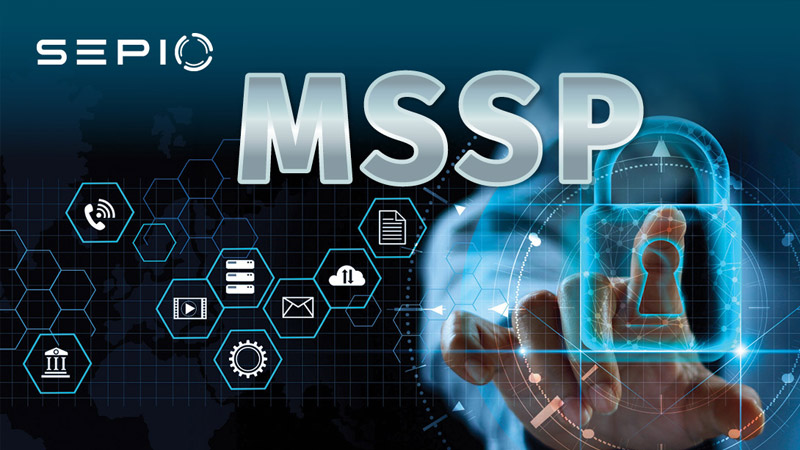In an increasingly digital world, the security of data, networks, and systems has never been more crucial. As businesses embrace digital transformation, the threat landscape continues to evolve at a pace that many internal IT teams struggle to keep up with. Cyberattacks are becoming more sophisticated, with bad actors constantly probing for weaknesses across every sector. Against this backdrop, external security expertise is emerging as an essential component of modern business operations, providing a scalable, proactive solution to cyber risk management.
A New Era of Cyber Threats
It’s no longer just large corporations or government bodies that face the threat of cybercrime. Today, businesses of all sizes are potential targets. In fact, small and medium-sized enterprises (SMEs) are often more vulnerable due to limited in-house security expertise and fewer resources to dedicate to cyber defence. From ransomware and phishing to advanced persistent threats, cyber risks are varied and relentless.
Remote working, cloud adoption, and mobile device use have further expanded the digital perimeter, making it increasingly difficult for traditional security models to protect sensitive data and infrastructure. A reactive approach is no longer sufficient—organisations must now anticipate and mitigate risks before they materialise.
What Does External Cyber Protection Involve?
Outsourcing cybersecurity involves entrusting part or all of an organisation’s defence systems to a specialist provider. These companies typically operate around-the-clock security centres, monitoring systems, analysing threats, and responding to incidents as they arise.
This can cover a broad spectrum of services, including vulnerability assessments, firewall maintenance, compliance support, threat intelligence, and real-time response. The aim is to offer continuous protection while freeing up internal teams to focus on broader operational objectives.
Why More Businesses Are Making the Shift
- Around-the-Clock Surveillance and Fast Action
Cyber incidents often strike when businesses are least prepared—outside working hours or during holiday periods. Security providers operate 24/7, dramatically reducing the time it takes to identify and neutralise threats.
- Deep Expertise and Advanced Technologies
Cyber defence requires specialist knowledge and tools that many businesses can’t afford in-house. Outsourced teams bring a wealth of experience and access to advanced systems such as AI-driven threat detection and predictive analytics.
- Flexible Security That Grows With You
Whether you’re hiring new staff, scaling operations, or integrating new digital platforms, external security services can grow and adapt alongside your business, offering flexibility that’s difficult to achieve internally.
- Simplifying Compliance and Regulation
For industries where data protection laws are strict, outsourced security teams provide invaluable support. They help ensure compliance with ever-changing regulations, assisting with audits, policies, and documentation.
- Smarter Spending on Cyber Protection
Hiring and maintaining an in-house cybersecurity team is expensive. By contrast, external providers spread their costs across multiple clients, making high-quality security more affordable and predictable.
Sector-Specific Security Solutions
Cybersecurity needs vary depending on the sector. Here’s how different industries benefit:
- Finance: Ensuring customer data is secure and maintaining compliance with financial regulations.
- Healthcare: Protecting sensitive patient data and adhering to data privacy laws like GDPR.
- Retail: Guarding payment systems and customer databases against hacking and fraud.
- Manufacturing: Securing IoT devices and operational technology from sabotage and data leaks.
- Education: Preventing ransomware attacks that disrupt services and compromise student data.
Points to Consider Before You Commit
While the benefits are compelling, choosing the right provider is essential. Look for partners who are transparent, offer tailored solutions, and have strong service-level agreements in place.
Understand where your data will be processed and stored—particularly important in light of global privacy regulations. You should also ensure that your provider complements your internal team, rather than replaces them. Good cybersecurity still requires in-house awareness and collaboration.
Building a Resilient Future
Security is no longer a static set of tools—it’s an ongoing process of evaluation, response, and innovation. Outsourcing can provide the edge businesses need to keep up with an increasingly complex digital environment.
Whether you’re launching a new venture or managing a mature operation, partnering with a professional security firm offers peace of mind, allowing you to focus on growth and innovation while staying one step ahead of cybercriminals.
Conclusion
The importance of robust, proactive cybersecurity cannot be overstated. Delegating security tasks to an expert partner provides businesses with the tools, vigilance, and confidence to face modern threats. For organisations looking to elevate their protection strategy, CloudGuard offers a comprehensive solution that adapts to your specific needs.
If you’re exploring options to strengthen your digital defences, it’s well worth considering their approach to managed security services—a proven, scalable way to safeguard your systems and data.




